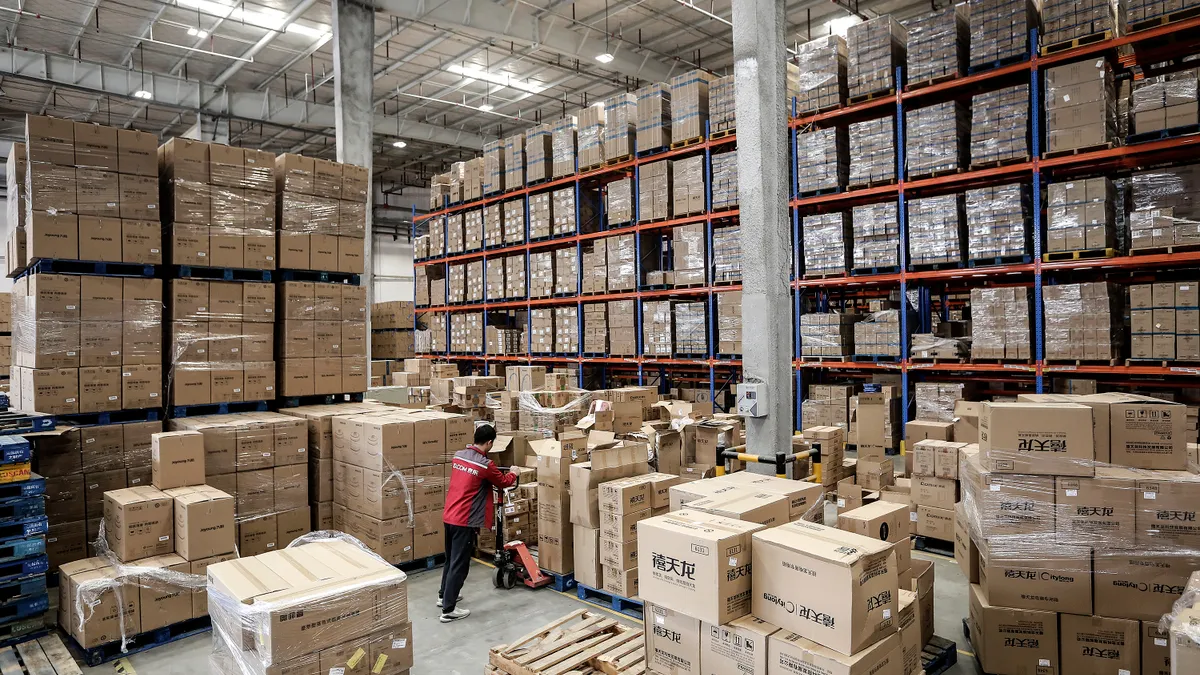Dive Brief:
- Most CFOs and other top executives (65%) said they are unable to accurately assess whether their suppliers meet environmental, social and governance (ESG) standards even as they face growing pressure from regulators to disclose sustainability measurements such as carbon emissions, according to a Sapio Research survey.
- While most (95%) companies agreed that in order to accurately gauge ESG performance they need to obtain data from their suppliers, 53% of respondents said the information is not readily available, according to a survey of 800 CFOs and other business leaders in six countries sponsored by Coupa Software, which focuses on spending management.
- Companies that collect data about their suppliers and use the information when making purchasing decisions can influence suppliers’ behavior on environmental and other issues, according to Donna Wilczek, senior vice president for product strategy and innovation at Coupa. “The outcomes are data visibility, compliance and control.”
Dive Insight:
Many companies — especially those in consumer-facing sectors — emit less greenhouse gasses than the combined total among businesses in their supply chains, according to Boston Consulting Group. By encouraging their suppliers to commit to net-zero emissions, the companies can spur emissions reductions in “hard-to-abate” sectors.
The Securities and Exchange Commission (SEC) last month released a proposal that companies follow detailed rules for reporting on climate risk, asserting that businesses and investors will benefit from clear, uniform disclosures on the costs from global warming.
Investors with $130 trillion in assets under management have asked companies to disclose their climate risks, according to SEC Chair Gary Gensler.
Under the proposal, the SEC would require some companies to report on so-called Scope 3 emissions by their suppliers, vendors and other third parties across their supply chains. The reports would be phased in, subject to safe harbor protections and not required of smaller companies.
The SEC would require companies to describe on Form 10-K their governance and strategy toward climate risk and their plan to achieve any targets they’ve set for curbing such risk.
Companies would also need to disclose their greenhouse gas emissions, either from their facilities or through their energy purchases, and obtain independent attestation of their data and estimates. The SEC proposal is subject to a comment period scheduled to end May 20.
Companies outside the U.S. must also begin paying closer attention to ESG performance among their suppliers. Beginning in January, companies in Germany with more than 3,000 employees need to monitor their supply chains for adherence to environmental and human rights standards.
Nearly three out of five companies (57%) said they lack a risk management system to ensure adherence to ESG standards across their supply chains, according to the Coupa survey.
“We see over and over, especially as organizations have grown through acquisitions or they’ve grown quickly, they’ve cobbled together an IT architecture that is very fragmented,” Wilczek said in an interview.
“If you ask a CFO, ‘give me a granular report of what your organization has purchased, who they have purchased from, at a level the government is increasingly requiring,’ many cannot do that,” she said.
At many companies, upgrading systems to monitor suppliers will prove costly. More than half of companies (53%) said that complying with ESG-related regulation will impose a large or substantial financial burden, according to the Coupa survey.
Still, most companies are committed to achieving goals that align with better ESG performance, with 94% seeking greater energy efficiency, 91% aiming to cut greenhouse gas emissions and 87% supporting a reduction in deforestation, according to the survey of businesses with more than 1,000 employees in the U.S., Australia, France, Germany, Singapore and the U.K.












